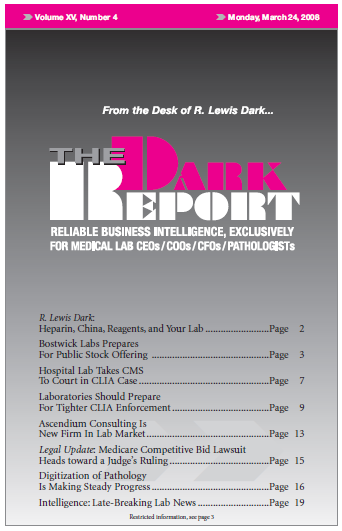CEO SUMMARY: Growing numbers of laboratories are taking steps to reengineer work flow, evaluate automation solutions, and improve the operational performance of their laboratory. This is fueling a demand for laboratory consulting services and Ascendium Consulting is this newest healthcare and lab consulting company in this marketplace. It became operational on January 1, 2008, as …
Ascendium Consulting Is New Firm In Lab Market Read More »
To access this post, you must purchase The Dark Report.


